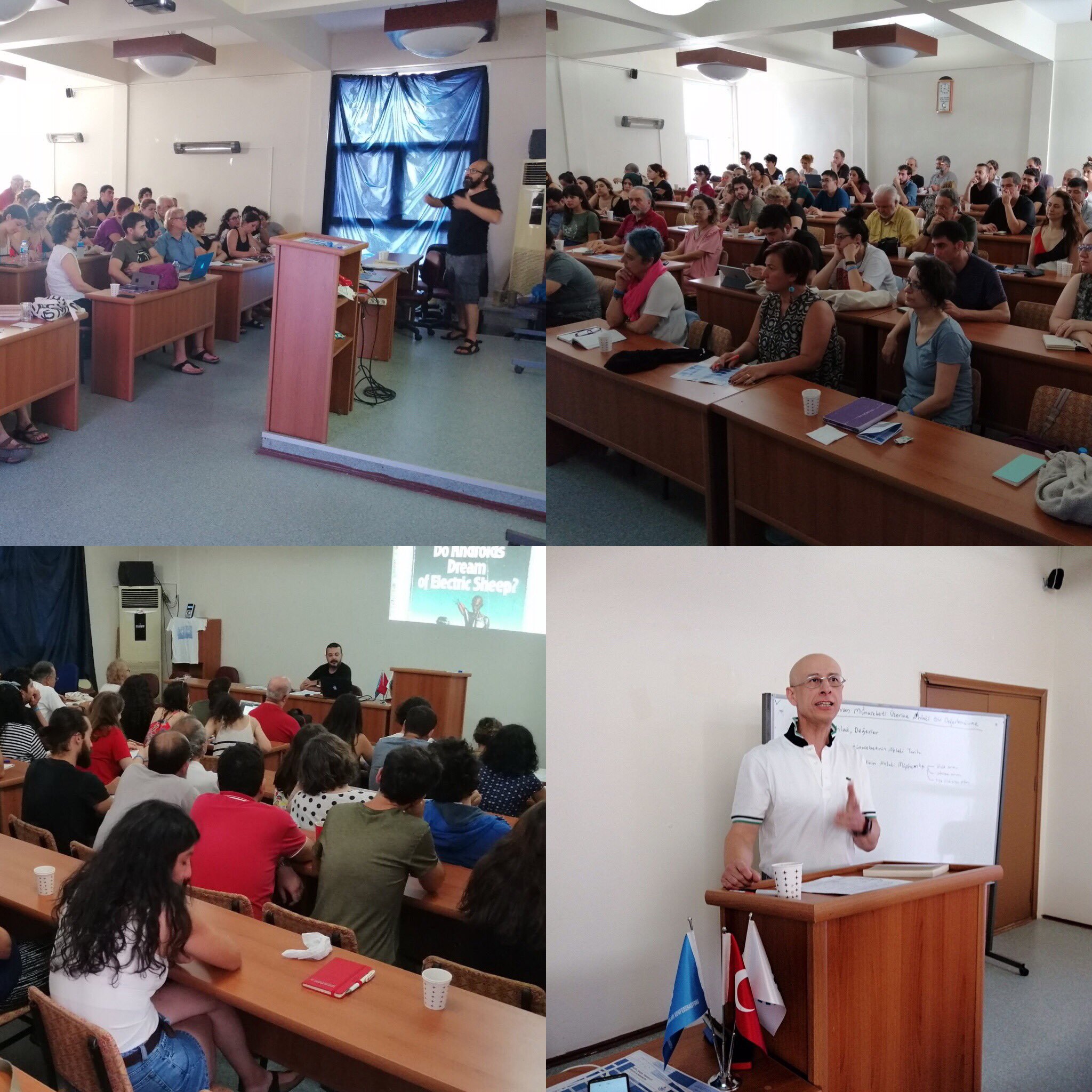Click to read the article in Turkish
Asst. Prof. Dr. Hülya Kendir is one of the academics dismissed from their posts for signing a declaration entitled "We will not be a party to this crime".
Hülya Kendir, Onur Hamzaoğlu, Özlem Özkan, Ümit Biçer, Zelal Ekinci, Aynur Özuğurlu were among the 19 academics who were dismissed on On September 1, 2016, upon Statutory Decree No. 672. These academics did not give up solidarity and decided to establish the Kocaeli Academy for Solidarity (KODA) on September 5.
The academy opened on September 28 and classes began a week later.
In the third year, we listened to the dismissal process, the Academy and the events from Hülya Kendir.
"Solidarity kept us standing," she said.
"Our lives were turned upside down"
"The Peace Declaration was announced to the public on January 11, 2016. In July 2016, the state of emergency was announced. On the night of September 1 to September 2, we saw our names in the Official Gazette on a Statutory Decrees list for the first time.
"Lives the peace signatories had already entered the state of the emergency period as of January 2016. After the high political figures talked badly about us, the really troubling period began. After the statements, administrative investigations were opened and our lives were turned upside down.
"Most of those expelled from Kocaeli were active people in the Turkish Medical Association (TTB), Health Workers' Union (SES) and the Education and Science Workers' Union (Eğitim-Sen). So we were people who were also vocal about the various things that happened at the university. But the period that started from January 11th was a much different one. We went through a period where we felt finger-pointing, veiled or explicit threats.
 Photo: KODA/Twitter
Photo: KODA/Twitter
"It was really interesting at first. We started seeing each other all the time. We tried to understand the process. We tried to understand what dismissal means, what it means to never go into public service again. We tried to understand what our rights would be, we tried to understand the passport issue. That's when you think of everything. But really at first, there was a matter of understanding.
"There was bewilderment in all of us: 'What happened now?' On the one hand, we were talking about what our social-economic rights were and what happened, on the other hand, we were talking about what we were going to do.
"It was like going to jail together"
"We met on September 5. It was a very heartfelt, intimate environment. It was kind of like going to jail together or getting in trouble.
"At our first meeting, we said, 'We must stand together, in solidarity.' We talked about not leaving the university, not leaving the city. We stressed that we need to continue any political and legal fight to get back.
We said, 'Let's not empty our rooms quietly, let's not go quietly.' Because it was now a public matter. This is how the idea of establishing the Kocaeli Solidarity Academy came about. Building some kind of an academy, doing seminars was the first thing that came to our mind.
"We decided to have an opening on September 28. We started our seminars the following week. For the first year and a half, we gave the seminars at the hall of Kocaeli Education-Sen Branch. The Statutory Decrees continued. Other dismissed colleagues joined us.
"We made an effort not to break away from both the city and its students. We created summer programs. Güven Bakırezer described the ideology of engineering, Derya Keskin gave a presentation titled 'Engineering and gender'. I gave a seminar entitled "On The Security State and the Precarious Society', Onur Hamzaoğlu gave a lecture on the social responsibility of the scientist.
"For 15 weeks, each academic gave a seminar and talked about issues of interest to society. Students came to classes and seminars; NGOs came, pensioners came. There were people from all walks of life who want to hear our seminars.
"With the acceptance of our application in 2017, we established the Kocaeli Solidarity and Research Association in January 2018. We set our goal as 'scientific and academic studies on the basis of an autonomous, scientific, secular, egalitarian and libertarian understanding of the university.
"We continued the lessons there. We created a summer program and named it after our friend Mehmet Fatih Shaş, who committed suicide after being expelled from the Department of Econometrics of the Faculty of Economics and Administrative Sciences of Çukurova University.
"We held our last seminar on a three-day program in July. "Nature, Human Technology: Crises and Possibilities."
"How to pay the bills keeps the mind busy"
"We had great difficulties in doing these things. The first problem I experienced was the loss of economic and social rights. Your pension entitlement is also being blocked. We were all people with over 10 years, 15 years of public service.
"The absence of a regular income on the 15th of every month creates is great confusion. How to pay the bills, for example, keeps the mind busy. That's where you understand the importance of solidarity. Eğitim-Sen have committed a certain amount of solidarity income to all of us in that period, people from other universities have made efforts to solidarize with us and have been constantly by our side.
"We held on to life in solidarity. I say being together really protected us. In some provinces, our colleagues who were on their own or were two of three people experienced this period too hard to compare with us. It's a much heavier process when you live alone.
"I'm not talking about hollow solidarity. It's a resistance to getting our rights back, to going back to college. It's not just solidarity in the sense of getting through the hard times, it's solidarity that includes being able to get through the good times all together again. Solidarity kept us standing." (HA/VK)




